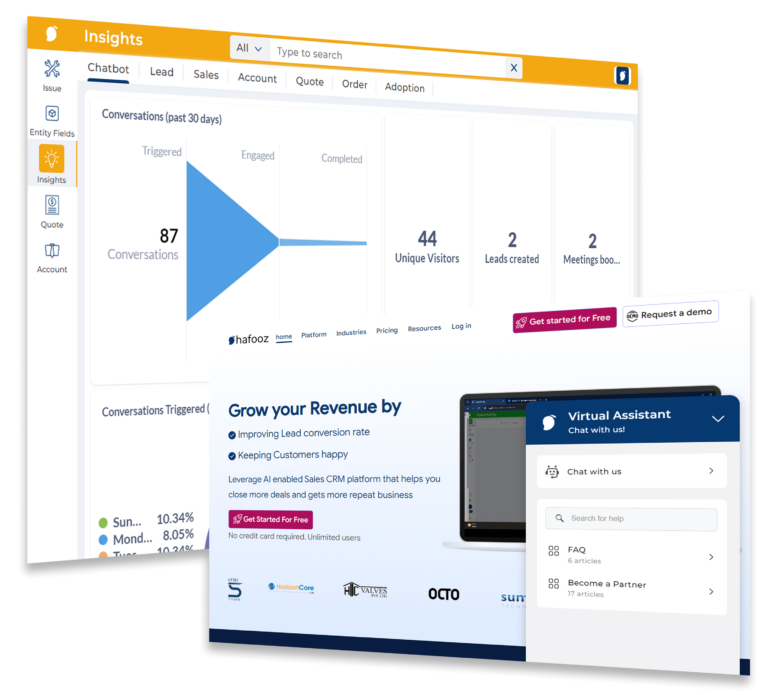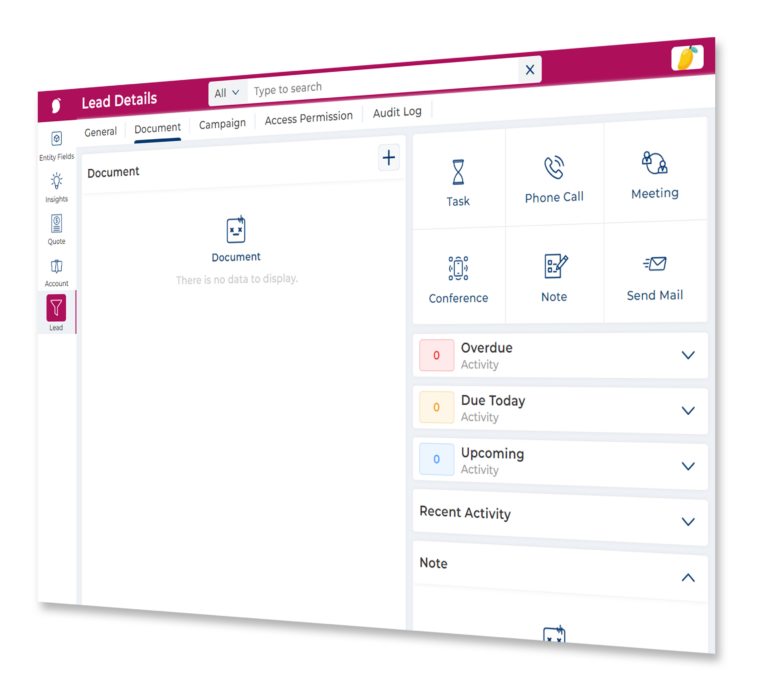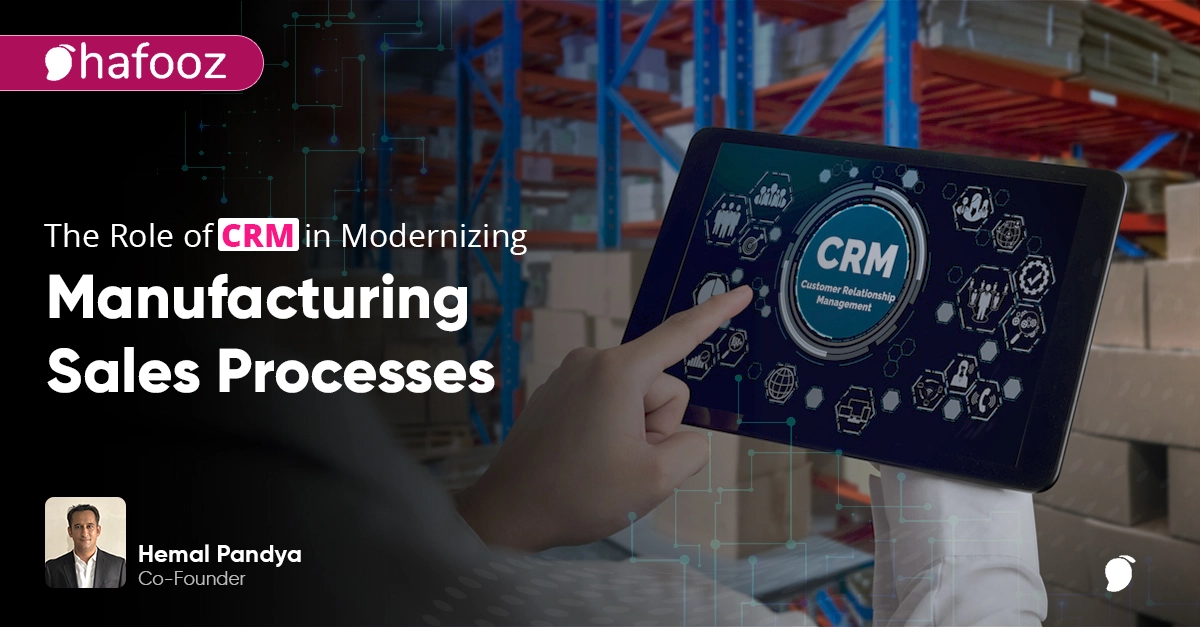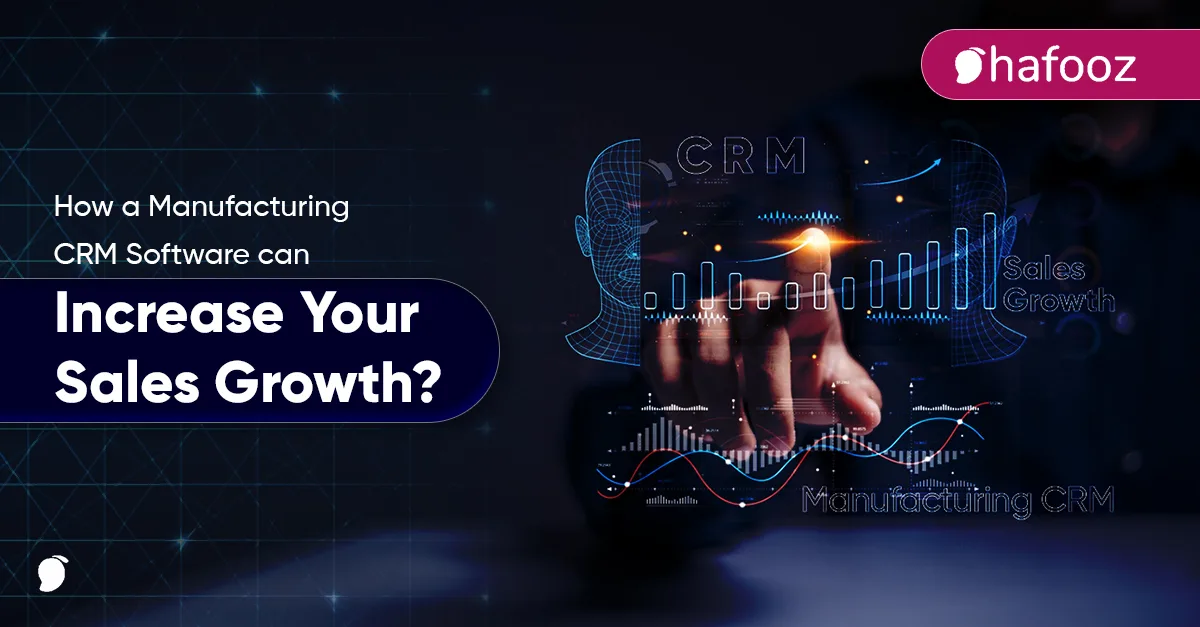Are you considering to implement or using CRM manufacturing software for your small or mid-sized business?
Sure, your data might not be scattered anymore. Spreadsheets and sticky notes would be replaced with an automated system.
But,
Are you truly managing relationships and streamlining your business processes? Or are you still hustling and bustling with your CRM manufacturing software for small businesses?
Well, stop feeling lost.
Because implementing a CRM can be challenging for many. This blog lists the top 5 CRM implementation challenges manufacturers face for small and mid-size companies.
Ready to overcome all the barriers? Let’s get started.
What's on this page:
Top 5 CRM Challenges and Their Solutions
Implementing a CRM is not easy. For a CRM project to succeed, you must start by:
- Pinpointing what exactly you expect from the system.
- How will the system align with your business goals? and
- Hurdles you may face during implementation, such as costs and diverse team needs.
Thus, to help you anticipate and overcome problems in implementing CRM, we have hand-picked the top 5 biggest issues small and mid-sized manufacturing companies deal with, along with their actionable solutions.
Dig in to turn your CRM implementation obstacles into opportunities.
Challenge 1: Lack of Role Clarity within Team
What would you do if your team members left important tasks unfinished? A lack of clear roles within teams can lead to errors, missed critical information, or unfinished tasks.
Clearly defined roles and responsibilities help streamline processes and ensure effective use of CRM.
Problem
Without a clear role clarity, team members are unsure of their responsibilities. This leads to implementation gaps and confusion. Overlapping tasks and miscommunications slow down the entire process and lead to frustration within the team.
Moreover, who will you hold accountable for anything if roles are not defined? CRM might not deliver the benefits you seek without clearly defining team roles, and it could add some complexities to your operations.
So what do you do?
Solution
You fix the roles.
Assign specific responsibilities to each team member, offer training sessions and establish clear communication channels. Finally, monitor the entire implementation daily. Also, be flexible and adjust roles as and when needed.
To do so, use CRM role-based access features to ensure each team has visibility and control over their respective tasks, avoiding overlap and confusion.
A few questions that can help with the implementation.
- Which team member will use the CRM and how?
- Who will be preliminary responsible for customer interactions or data management?
- How will you use the CRM to understand each department’s specific needs?
- Who will oversee CRM implementation?
- How will CRM improve workflow for each team member?
- Who will be responsible for training the team members?
- Who will take care of troubleshooting problems post implementation of the CRM?
The answers to these questions clearly define the objectives of your project. Defining each team member’s roles and responsibilities helps successfully implement manufacturing CRM software.
Challenge 2: End-User Adoption

Do you know that only 20% of people are “change-friendly” and willingly embrace change?
Resistance to change is a human tendency. Why fix what isn’t broken? Or What’s wrong with the previous methods? This is a common hurdle when implementing a CRM in small or mid-sized manufacturing companies.
Problem
Fear of change and constant desire to deliver simply reverts people to their old processes, frustration and reluctance to engage with new processes.
How Employees React to a CRM Implementation:
They may see a CRM as an added task. An overly complex or irrelevant system could disrupt their daily routine. They might struggle to completely utilize the system, leave features underutilized and data poorly managed.
How Customer React to a CRM Implementation:
Manufacturing company clients are usually accustomed to traditional communication methods or order processing. This shift could make them uncomfortable and might cause them to fear losing personal touch.
Problems in implementing CRM include a lack of understanding of the system, limited user experience and insufficient training. Finally, end users are often just expected to adapt to the changes.
Solution
CRM manufacturing software for small businesses is not all about technology. But it is also about the end user and how you train your users and make them feel acquainted with the new system.
So, how do you ease this transition for your users?
- Communicate the benefits of the CRM system.
- Highlight the advantages, such as streamlined processes and better customer insights.
- Offer them thorough training.
- Engage users from the very start of the implementation process.
- Provide support and online resources.
- Boost their confidence by showcasing and highlighting quick wins through the CRM.
- Monitor and gather feedback from the users.
- Make adjustments whenever necessary.
- Be prepared for changes as and when required.
Implementing a CRM for mid-sized businesses is not as simple as ABC. So, address the challenges of end-user adoption with strategic solutions. Provide them guidance with simple tutorials and a dedicated point of contact. Make them feel comfortable and valued during the change.
Challenge 3: Poor Data Quality
Garbage in, garbage out. It is inferred without saying that if you input bad-quality data, your output will be equally bad.
Thus, the quality of your CRM database depends on the data or information you enter into it. Incomplete, inconsistent or outdated data could cause missed follow-ups or delayed order fulfillment.
Problem
Poor data quality leads to inaccurate insights, inefficiencies and reduced user trust. CRM systems completely rely on the data you provide. Duplicate data, inaccurate information, and inconsistent data entry only wreak havoc on your system and the entire organization.
If a sales rep finds incorrect client information or outdated purchase history, they are less likely to rely on the systems.
Thus, they would return to working on spreadsheets and manual notes instead of choosing a CRM. This could become a cycle, and CRM would become a burden rather than a tool to empower your team.
Solution
To mitigate data quality issues, you can implement a few guidelines from the very start. To generate better results, you can start with the following.
- Regular data validation checks
- Regular data cleansing
- Routine data maintenance
- Assigning someone for data integrity
- Periodically auditing the database
You can also train your employees and make them understand the importance of good-quality data.
Challenge 4: Integration with Other Systems

You have opted for a CRM system to organize all your messed-up data better. Of course, you want to add value to your business and improve it. To do so, you will want to integrate it with your existing IT infrastructure.
But, depending on your small or mid-size manufacturing company, it can be one of the biggest CRM challenges.
Problem
Your existing tools may range from ERP systems and supply chain management systems to accounting software. A successful CRM implementation means seamlessly integrating all these systems for a unified view.
Integrating a CRM into an existing system can result in problems ranging from system compatibility issues to data synchronization delays, such as data silos, inconsistencies and technical glitches.
Solution
Integration is a tricky process. It involves data migration, consumes hours and needs planning.
You can start by prioritizing a CRM system that offers you robust integration capabilities. Furthermore, you can assess your data, implement data mapping and find appropriate tools.
In the end, if nothing works, you can ask for help from an expert or consider hiring external consultants.
Challenge 5: Choosing a Wrong CRM System
The number of CRM platforms available in the market is endless. You might want to try out all of them before making a choice, but that may take forever, or you may end up confused within a few days.
Problem
Imagine investing in a CRM for your manufacturing company that brings zero to no benefits.
Manufacturing companies often choose CRMs based solely on their features rather than what fits their business model needs. They get caught up in thinking that complex functionalities mean better performance.
Many are even unsure about their own requirements and are pressured to adopt the latest technologies. While this may be beneficial, what if it overwhelms their teams, lacks user adoption or doesn’t address their pain point?
Adopting anything new can be stressful. So, how do you choose a CRM system that fits your business needs?
Solution
Start by understanding your needs, business goals, and processes. Identify features and functionalities that are crucial for your business. Research and communicate with key company stakeholders.
For better understanding, ask yourself the following questions.
- How is it different from other CRM systems?
- Is it user-friendly and compatible?
- Does it meet your current and future needs?
- Can it be integrated with your current IT infrastructure?
- What is the cost of ownership?
- What kind of security does it offer to your data?
- Will you get post-implementation support?
Finally, look for a CRM that aligns with your business needs, enhances productivity, and supports customer relationship management.
Additional CRM Tips
Nurturing leads, converting opportunities and advancing with the latest techs—the pressure is endless! For the same reasons, selecting the best CRM for small manufacturing businesses is crucial.
Here are a few tips for selecting the perfect CRM software for your manufacturing business.
- Find a CRM software that provides a 360-degree customer view.
- Choose software that offers automation features, such as chatbots, automated lead generation and more.
- A CRM should have a user-friendly interface.
- Find a CRM that fits your customizable business needs.
- It should offer role-based access to your data.
- Find a CRM solution that is pocket-friendly.
- A CRM that offers data security.
Finally, look for CRM software that maximizes your ROI, improves your lead conversion rates and keeps your customers happy.
hafooz: The Right CRM Choice for Your Business
There is no best CRM for a small manufacturing business. It is also not a matter of whether you should use CRM manufacturing software for small businesses but how you plan and execute a successful CRM implementation.
Your role in this process is crucial, and careful planning is key. So, if you want to be on your guard and tackle this change with the right care, try to overcome these challenges.
If you are unsure how, contact our experts at hafooz.







